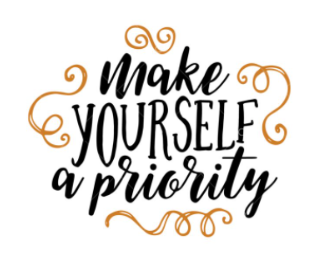Evolving Fitness Goals
The Importance of Flexibility, Patience, and Self-Care
Fitness goals are not static. They evolve as our lives change, as we face new health challenges, and as we gain new perspectives on our bodies. In order to stay motivated and maintain progress, it's critical to be flexible, patient, and kind to ourselves. This blog article will discuss the sports psychology around evolving fitness goals, the importance of remaining positive, and some easy ways to get fitness into your life.Sports Psychology and Evolving Fitness Goals:
The first step in embracing evolving fitness goals is to understand the sports psychology behind it. Athletes of all levels experience changes in their performance over time, and the most successful ones are those who are able to adapt and remain positive. When we face life situations or health changes, it can be easy to feel discouraged or overwhelmed, but it's important to remember that setbacks are a natural part of the process. By acknowledging and accepting them, we can move forward with renewed energy and focus.Staying Positive and Motivated:
Maintaining a positive attitude is critical for staying motivated, and the science supports this. Research has shown that a positive mental attitude can improve endurance, increase energy levels, and enhance overall performance. So, how do we cultivate a positive mindset? One key strategy is to focus on the process, rather than the outcome. By setting small, achievable goals and celebrating each small win along the way, we can stay motivated and build momentum.Flexibility, Patience, and Self-Care:
Flexibility, patience, and self-care are key ingredients in any fitness journey, and they become even more important as our goals evolve. When we experience good days, it's important to enjoy them and feel proud of our accomplishments. When we experience bad days, it's important to be kind to ourselves and remember that setbacks are temporary. And, regardless of how we're feeling on a given day, it's critical to prioritize self-care. This might mean taking a rest day, treating ourselves to a massage, or simply taking a few minutes to meditate and connect with our bodies.
5 Easy Ways to Get Fitness into Your Life:
Getting fitness into your life doesn't have to be complicated or time-consuming. Here are five easy ways to get started:- Take a walk: Walking is a great low-impact exercise that can be done almost anywhere. Try taking a brisk walk during your lunch break or after dinner.
- Try a new activity: Trying something new can be a great way to shake up your routine and stay motivated. Sign up for a dance class, try a new sport, or take a yoga class.
- Set a small goal: Setting a small, achievable goal can be a great way to build momentum and stay motivated. This might be something as simple as doing 10 push-ups a day or running a mile in under 10 minutes.
- Use technology: Fitness apps and wearable technology can be great tools for tracking progress and staying motivated. Try using a fitness app to set goals and track your workouts.
- Find a buddy: Working out with a friend can be a great way to stay accountable and have fun. Try finding a workout buddy to go for walks, hit the gym, or take a class with.
 Want to learn more about how to navigate your evolving fitness goals?
Want to learn more about how to navigate your evolving fitness goals?
Here are some scientific and further reading suggestions on the topic of evolving fitness goals and the importance of flexibility, patience, and self-care:
-
- "The role of self-compassion in exercise behavior" by Yijie Wang and colleagues, published in the Journal of Applied Biobehavioral Research. This study examines the role of self-compassion in exercise behavior and suggests that it may be an important factor in promoting exercise adherence and well-being.
- "Promoting Flexibility and Positive Emotions: A Pilot Study of a Yoga Program for People With Poststroke Disability" by Arlene Schmid and colleagues, published in the Journal of Rehabilitation Research and Development. This study examines the effects of a yoga program on flexibility and positive emotions in people with post-stroke disability.
- "The effects of mindfulness-based interventions on exercise performance" by Bernadette Murphy and colleagues, published in the Journal of Health Psychology. This study reviews the effects of mindfulness-based interventions on exercise performance and suggests that they may be a useful tool for enhancing exercise motivation and adherence.
- "Patience is a virtue: the role of patience in physical activity adherence" by Shaelyn Strachan and colleagues, published in the International Journal of Behavioral Nutrition and Physical Activity. This study explores the role of patience in physical activity adherence and suggests that it may be an important factor in maintaining long-term exercise habits.
- "Self-care strategies for physicians" by Adriaan Louw and colleagues, published in the Journal of Pain Research. This article provides practical self-care strategies for healthcare professionals, including exercise, stress management, and mindfulness practices.
- "The Mindful Athlete: Secrets to Pure Performance" by George Mumford, a book that explores the role of mindfulness in sports and physical activity and provides practical strategies for enhancing performance and well-being.
- "The Athlete's Way: Training Your Mind and Body to Experience the Joy of Exercise" by Christopher Bergland, a book that explores the science of exercise and happiness and provides practical strategies for developing sustainable exercise habits.
These resources provide scientific insights and practical strategies for promoting flexibility, patience, and self-care in the context of evolving fitness goals. By prioritizing these elements, individuals can better support their overall well-being and make it easier to achieve and maintain fitness goals over the long term.

